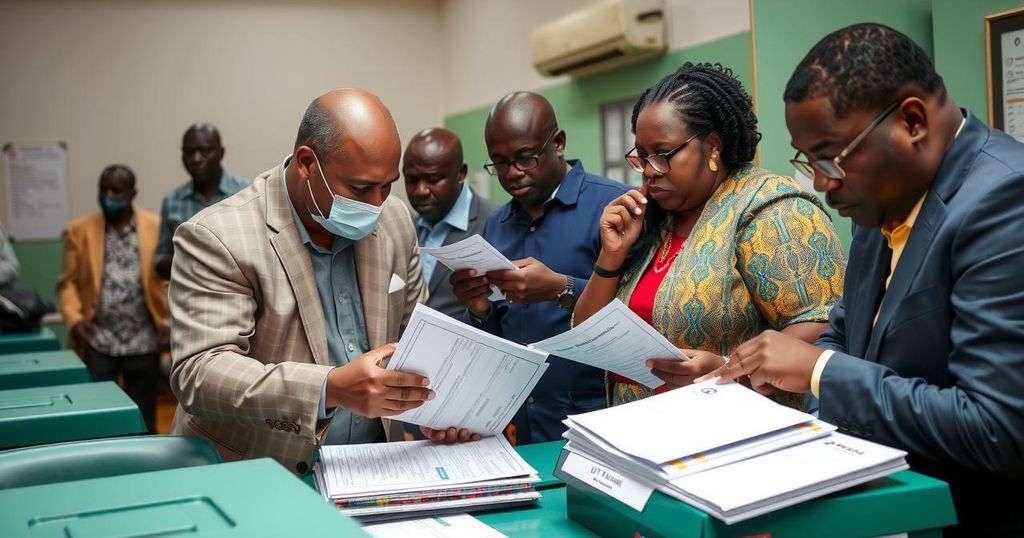Namibia’s Electoral Court Allows Opposition Parties to Inspect Election Materials
Namibian opposition parties IPC and LPM won legal rights to review election materials from recent elections, contesting SWAPO party’s retained power. They allege irregularities and suppressed voter turnout. Court ruling enables inspection, while electoral officials maintain that opposition parties failed to adequately monitor the electoral process during voting.
In a significant legal win, the Electoral Court in Namibia has granted the Independent Patriots for Change (IPC) and the Landless People’s Movement (LPM) the right to inspect election materials from the recent presidential and legislative elections. This ruling comes in the wake of the two parties contesting the results which confirmed the SWAPO party’s continuation in power, albeit with a diminished majority. The opposition claims that there were irregularities during the voting process, particularly noting that some areas experienced voter suppression due to a shortage of ballot papers.
John Nakuta, a human rights lawyer, articulated the opposition parties’ intentions, suggesting that they aim to uncover any potential irregularities through their inspection. If evidence of misconduct is found, they plan to request the court to nullify the election results. IPC spokesperson Imms Nashinge reaffirmed the party’s refusal to acknowledge the election results, highlighting their stance against what they label a fraudulent election process, and conveying that other political factions are supportive of their position.
Elections Commissioner Pius Iikwambi and commission spokesperson De Wet Siluka stated that the commission had previously agreed to allow the parties to inspect the electoral materials. They emphasized that the political parties were remiss in their responsibilities to monitor the election process effectively. Siluka noted that they had provided resources for these parties to verify the election conduct as it unfolded.
This legal contention arises as Namibia held its recent presidential and National Assembly elections, where the SWAPO party maintained its control of the legislature. Despite their victory, opposition parties allege significant electoral irregularities, leading to their pursuit of evidence to validate their claims. The scenario reflects a larger discourse surrounding electoral integrity and the participatory roles of various political entities in safeguarding democratic principles in Namibia’s governance.
The ruling by the Electoral Court allowing inspection of election materials represents a critical juncture in Namibia’s electoral process. As the IPC and LPM seek to substantiate their claims of misconduct, the implications of these findings could potentially alter the political landscape. However, the actual impact of the inspections on the confirmed results remains to be seen, highlighting ongoing tensions within Namibia’s democratic framework.
Original Source: www.voanews.com




Post Comment